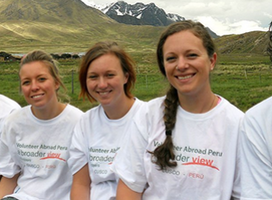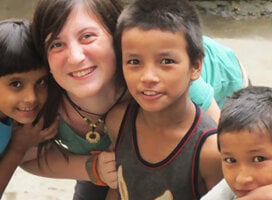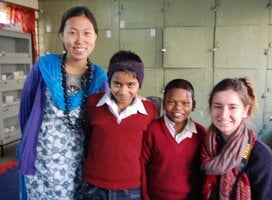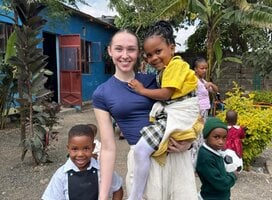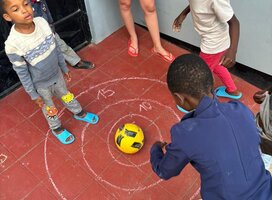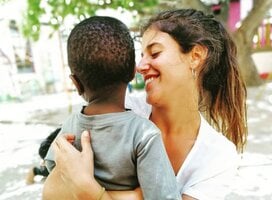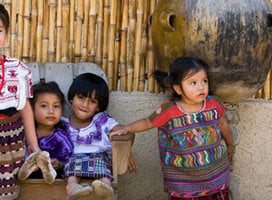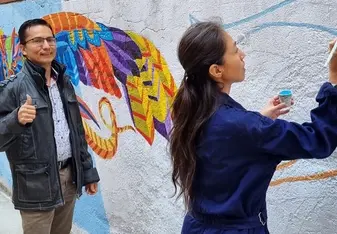Orphanage Volunteer Programs Abroad
Volunteering with children or at an orphanage sounds like a worthy and worthwhile cause. Unfortunately, within the world of orphanage volunteering, it's far more likely you'll do harm than good if you don't do ample research, find a responsible organization, and prepare yourself for the real work required to support orphans around the globe. Impactful volunteering at an orphanage is not about snuggling young children or playing games; this guide aims to prepare you for the reality of what orphanage volunteering is actually like.
UNICEF estimates that for every 100,000 children, 102 of them are in institutionalized care worldwide. A large number of orphanages for volunteers have been set up to scam volunteers from their time and money, to take advantage of well-meaning travelers, and to do meaningful and long-lasting harm to the children in their care. In this guide, we attempt to give you a balanced but realistic picture of the orphanage volunteering industry and to educate you about the risks involved for you and for the children you hope to help.
The reasons that children become orphaned are varied around the world. On all continents, poverty is a leading cause of orphans and is the underlying factor for poor healthcare and education. The AIDS epidemic, especially in Sub-Saharan Africa, is a major contributor to orphaned and abandoned children in the region.
Countries that have been plagued by war or natural disasters (like Haiti, Chile, Sri Lanka, Darfur, Niger, Pakistan, Mali, Chad, Syria, and Indonesia) also have an overwhelming amount of children missing one or both parents, in addition to a dwindling amount of people able to care for them due to the country’s dangerous and despondent circumstances. Countries with limited government stability are typically unable to produce funding for public assistance programs or qualified people to run and oversee orphanages or care homes.
Most volunteers are not aware of orphanage scams -- or if they are, they often overlook the warning signs and are shocked to arrive in their volunteer placement and end up contributing to a system that takes advantage of a highly vulnerable population of children.
It is your responsibility to do your research before committing to a volunteer program of any kind, to ensure that the program is ethical, responsible, and does 'good' business. Make sure you're ready to be a good volunteer and and pick a responsible and reputable program.
When it comes to orphanage volunteering, it's important to keep some of the following additional issues in mind:
- Up to 80% of children that are marketed as 'orphans' in orphanage volunteering schemes have one or more parent or extended family member still living who could provide them care. These children are often used to lure volunteers who pay to work at the orphanage. Those volunteering fees go to the administrators with little left for education or nutritious food as may have been originally promised; this takes advantage of your generosity to divert your volunteering dollars away from the children who need them.
- In almost any situation, including non-orphanage settings, children can form strong attachments to someone showing them affection or with whom they develop a bond. They can also be deeply hurt, confused, and re-traumatized by abandonment when that person leaves or does not keep promises to keep it touch or visit -- an inevitability in the case of orphan volunteering placements. For that reason, volunteering at an orphanage can actually have more of a negative than positive effect on the children, regardless of their orphan status.
- As a result of our previous point, very rarely should you actually be allowed to interact directly with the children. It's more responsible to get involved with tasks that don't have you interacting with children on a day-to-day basis, like cooking, cleaning, or administrative tasks. If this isn't what you hope to do on your volunteer placement, you may not be ready to volunteer abroad.
- Consider your previous experience and skills to see if you would be qualified to volunteer at an orphanage. Do you have knowledge of the local language or culture? Do you have a degree in education, childhood development, social work, or international development?
Orphanage Volunteer Programs Abroad
Pagination
What People Are Saying
Related Volunteer Abroad Articles
Frequently Asked Questions
-
What do you do when you volunteer at an orphanage?
If you want to volunteer at an orphanage, it's more responsible to get involved do tasks like cooking, cleaning, or administration instead of interacting with children, unless you are credentialed in child development, education, or casework.
-
How can we help orphans?
More than anything, we need to be educated about our actions and how they can do harm even with good intentions. Educate yourself on the issues affecting orphans, including scams of 'fake orphanages,' and make sure the volunteer organization is properly vetted. Read reviews and interviews from previous volunteers to make sure this is the kind of program you want to be a part of.
Related Content -
How many children live in orphanages?
UNICEF estimates there are 140 million orphans around the world, with 2.7 million in institutionalized care such as orphanages.
Related Content

